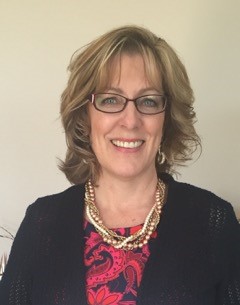Lessons Learned from Our Daughter and Those Who Support Us
October 4, 2016
We knew Rebecca had Down syndrome before she was born, which allowed our family to ask questions, get up-to-date information and decrease some of our fears. We've learned a few things along the way.
Early Intervention is important: When I look back at our experience with Early Intervention, I remember nothing but warmth and support while we navigated this new stage of our lives. Beginning with Lisa, her physical therapist who was a friend of mine before our daughter's birth, to the speech therapist who melted my daughter's resistance, they gave us ideas to encourage Rebecca's growth and development. Each therapist answered our questions and explained what they were doing and its purpose. I am a former psychiatric occupational therapist (OT) but Rebecca's OT, Traci, never acted as if I should already know the answers. They often observed our interactions and gave suggestions to enrich these moments. They involved my 4-year old daughter in the therapy sessions, too, as she was going to be Rebecca's primary playmate. Thirteen years later she continues to be the one who knows Rebecca best.
My daughter is more than her diagnosis: We've encountered people along the way who only see a diagnosis. They never look directly at Rebecca and only address her when necessary. But we've met others who do see our child. When Gail, our speech therapist, walked in and settled into a comfortable position, Rebecca crawled into her lap and hugged her tightly. They had an immediate connection. Gail spoke directly to her, looked Rebecca in the eyes and found items that motivated her to participate in the therapy session. Gail gave her choices, thus empowering our little toddler, while still achieving the goals she set for the day. She looked at who Rebecca was and not simply a diagnosis. Gail demonstrated the "Person First" approach and its importance, not just in achieving maximum therapy results, but living life in general.
Try not to reinforce negative or inappropriate behaviors: The last important lesson we learned was through Rebecca's developmental therapist, Jennifer. She pointed out that along the way Rebecca would certainly bring us great joy and laughter with some of her antics. But she suggested we look at any negative or inappropriate behaviors and ask ourselves, "Do we want to see this behavior when she is older?" If the answer is no, then we should not encourage them when she is young. It is easier to teach a child to do something right and appropriate from the beginning, instead of teaching a child to unlearn the behavior. Wow! We have found this to be one of the "Golden Rules" of raising a child with Down syndrome.
We are forever thankful for the wonderful experiences and people we met during Rebecca's sessions. Our deepest thanks go to Jennifer, Lisa, Traci and, in memory, Gail.
 Chris Newlon is a retired occupational therapist, and a Public Speaker for the National Association for Down Syndrome; Illinois DS Ambassador for the National Down Syndrome Society; Therapeutic Committee member with GiGi's Playhouse, Inc.; a mom and parent advocate.
Chris Newlon is a retired occupational therapist, and a Public Speaker for the National Association for Down Syndrome; Illinois DS Ambassador for the National Down Syndrome Society; Therapeutic Committee member with GiGi's Playhouse, Inc.; a mom and parent advocate.







